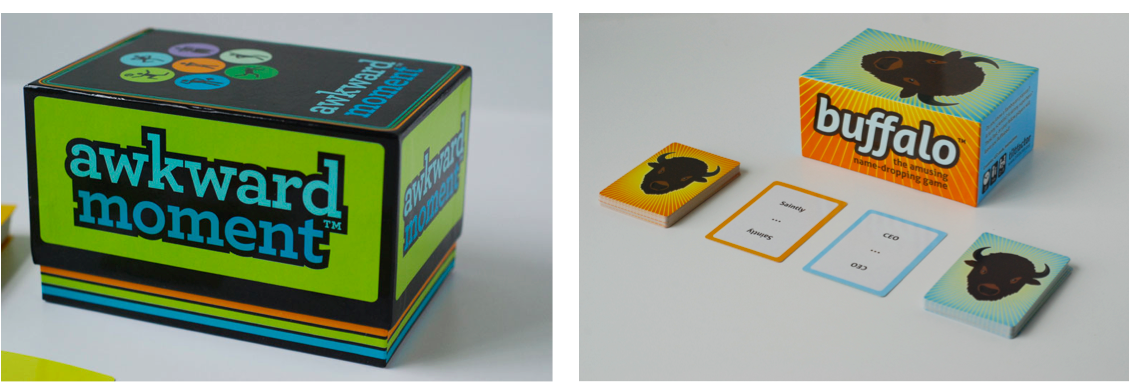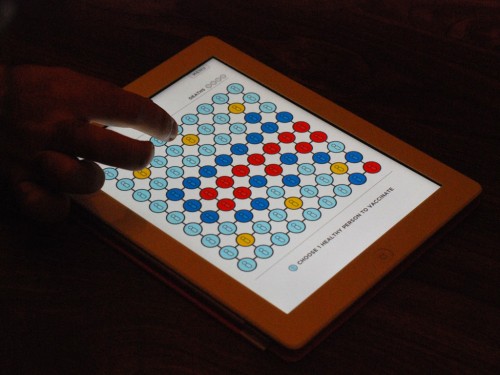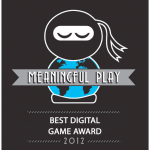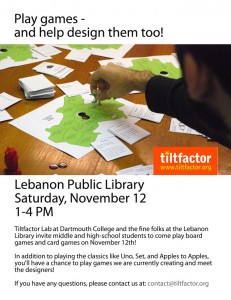Tiltfactor’s director Mary Flanagan was honored at the 13th Annual Games for Change Festival in June 2016!
Flanagan was awarded the Vanguard Award. This award recognizes the significant contributions of a practitioner by being a champion, advocate, and mentor for a new generation of game creators, and rewards outstanding individuals in impact games.
The Games for Change Festival organizers noted that Flanagan is:
“… A leading innovator, artist, educator and designer, whose works have included everything from game-inspired art, to commercial games that shift people’s thinking about biases and stereotypes. Flanagan established the internationally recognized game research laboratory Tiltfactor in 2003 to invent “humanist” games and take on social change through games.”
This is a preview of
Flanagan honored with Vanguard Award from Games for Change
.
Read the full post.

 Tiltfactor Lab, a Dartmouth College research laboratory with Sherman Fairchild Distinguished Professor Mary Flanagan at the helm, is dedicated to “creating games for social change.” They designed and produce Buffalo—described by Amazon reviewers as an “extremely simple,” “adaptable” party game—and Awkward Moment—and is “an interesting, family-friendly card game that is worthy of your attention” and “makes you laugh”— provide more than just endless fun at parties. According to a paper to be printed in CyberPsychology’s upcoming issue devoted to the prosocial effects of games,
Tiltfactor Lab, a Dartmouth College research laboratory with Sherman Fairchild Distinguished Professor Mary Flanagan at the helm, is dedicated to “creating games for social change.” They designed and produce Buffalo—described by Amazon reviewers as an “extremely simple,” “adaptable” party game—and Awkward Moment—and is “an interesting, family-friendly card game that is worthy of your attention” and “makes you laugh”— provide more than just endless fun at parties. According to a paper to be printed in CyberPsychology’s upcoming issue devoted to the prosocial effects of games, 




 Michael Mateas, Noah Wardrip Fruin, and Mary Flanagan, half of the art-theory collaboration Grand Text Auto, gathered at the
Michael Mateas, Noah Wardrip Fruin, and Mary Flanagan, half of the art-theory collaboration Grand Text Auto, gathered at the ![players collaborate with [giantJoystick]](http://www.we-make-money-not-art.com/wow/0aagiantjoyst4.jpg)